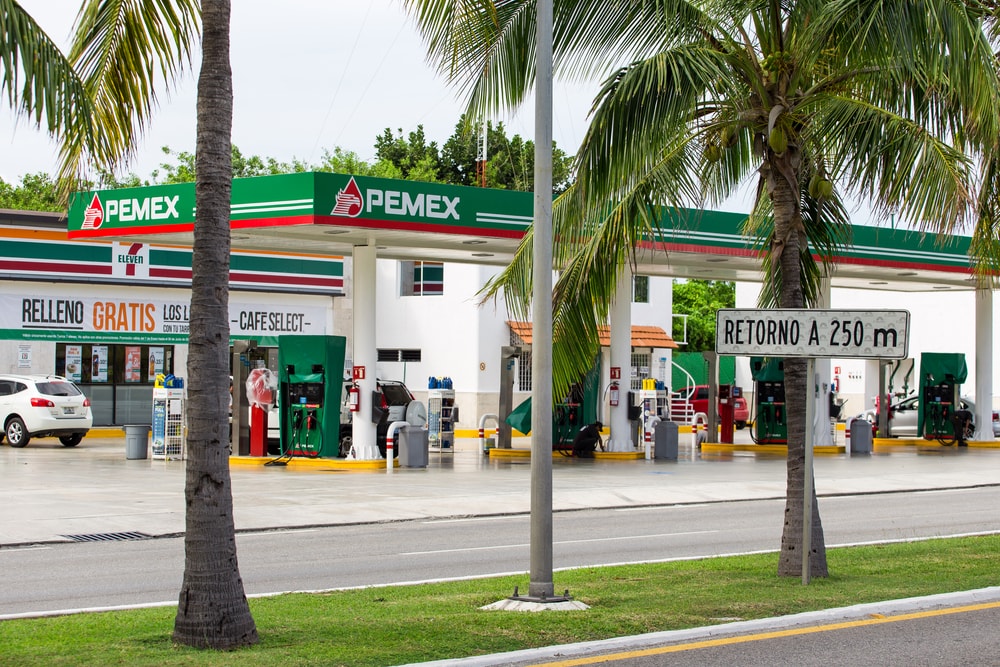This article was republished with permission from FCPAméricas Blog, for which Matteson Ellis is founder, editor and regular contributor.
Over the years, companies providing goods and services to Petróleos Mexicanos (Pemex), Mexico’s state-owned oil & gas company, have faced numerous FCPA risks. Pemex is considered an “instrumentality” of a foreign government under the FCPA since it is controlled by the Mexican government. As a result, its officials are considered “foreign officials” under the FCPA, and improper payments made to them directly or indirectly implicate FCPA liability.
FCPA enforcement actions involving Pemex have traditionally related to contracting with Pemex to provide goods and services. Software company Paradigm B.V. paid $1 million in FCPA penalties based in part on consultant payments, gifts and travel expenses for a Pemex official related to a subcontract it performed on a Pemex project. The FCPA settlement with HP Mexico that included $2.53 million in forfeitures was based on payments the company made to a technology consultant in connection with the sale of HP software packages and licenses to Pemex. Siemens’s 2008 blockbuster settlement related to, among other things, the payment of approximately $2.6 million in bribes to a well-connected business consultant in Mexico, some portion of which allegedly was routed to a senior Pemex official to help the company resolve cost overrun issues related to three refinery modernization projects.
With the recent and historic energy reform in Mexico, described here, Pemex has now been converted into a state-owned productive enterprise, no longer acting as the only operator in the country, but instead as one of many actors in the oil and gas industry alongside private companies. Pemex has been stripped of its monopoly and of the many regulatory and social functions it once performed.
In the wake of this reform, companies now operating in Mexico are finding new risks related to their interactions with Pemex:
Partnering with Pemex in Ventures
Through farm-ins / farm-outs and joint efforts to bid on, win and exploit blocks, some private companies find themselves choosing to partner with Pemex, either as an operator or non-operator. There have already been unsubstantiated rumors that, simply to arrange meetings to initiate discussions about these opportunities, Pemex officials have demanded improper payments. Moreover, when a company successfully partners with Pemex, the fact that it is venturing with a state-owned entity can bring with it other FCPA risks. To be sure, partnering with a foreign government entity is not precluded by the FCPA, so long as the entity was not selected because of an improper motive and the relationship is structured on a commercially reasonable basis. But these ventures present significant FCPA risks, even where the venture is, in the first instance, entirely legitimate. A violation could occur, for example, where the company overcompensates Pemex’s directors in an effort to influence their decisions related to the venture. This could occur through lavish gifts or hospitality expenditures, which are common in Mexican business.
Pemex Officials as Owners / Participants in Third Parties
Given that the role of Pemex in the Mexican energy sector has been greatly reduced, it is expected that former Pemex officials who still have connections with the company will populate the local oil and gas services industry. Current Pemex employees might also seek to benefit from the market’s opening by starting their own oil and gas services companies. While it can be appropriate to contract with entities connected to Pemex officials, these engagements would need to be transparent and subject to strict controls to ensure they do not represent hidden forms of bribery to gain influence at Pemex.
Pemex as Vendor
Exploration and production companies should expect to hire Pemex at some point as a provider of goods and services. To start, Pemex controls much of the oil and gas transportation infrastructure in the country. If a new operator wants to utilize Pemex pipelines, it will need to engage in contractual negotiations. These negotiations could be complicated, involving novel issues. For example, given the archaic and deteriorated state of infrastructure, a company might need Pemex to update its metering systems so that it can track crude belonging to different owners. Similarly, because operators are required to have plans in place for well control and spill response, and because Pemex is the only company that currently has these resources in place, it might be necessary to contract with Pemex for their use. These types of commercial dealings could put pressure on participants to make improper payments to get beneficial terms, or simply to close a deal.
Commercialization of Crude by Pemex
In the evaluation phase and possibly beyond, Pemex’s commercial arm, Petróleos Mexicanos Internacional (PMI), is responsible for marketing the country’s crude oil. Companies will thus be forced to sell their test crude to Pemex. This will involve negotiations related to commercial terms and quality (prices are said to be regulated). Such negotiations could invite risks of improper influence.
Pemex Legacy Operational Issues
Though it does not implicate risks of improper payments to Pemex, there might be legacy corruption risks related to Pemex’s prior operational practices in certain regions. For example, if a local mayor is accustomed to receiving improper payments from Pemex to transport equipment through the town, he might complicate the operations of a new operator that refuses to engage in the same practices. If cartels in a certain region obtained frequent “security” payments from Pemex workers, they might not look kindly upon a new company unwilling to do the same. In these ways, new actors could find that local communities have been conditioned to expect certain practices that are noncompliant with the FCPA.
Informal Pemex Interactions
Companies might find themselves interacting with Pemex in informal ways, given the ubiquitous nature of Pemex’s presence in the country. For example, a company with an offshore rig and limited transportation runs could find itself in need of urgently transporting water supplies to the rig. To do so, the company might find it useful to ask Pemex to assist as a favor, if Pemex has frequent boats traveling to the same area. Depending on the urgency of the situation, these types of informal interactions could create risks of improper payments.
The opinions expressed in this post are those of the author in his or her individual capacity and do not necessarily represent the views of anyone else, including the entities with which the author is affiliated, the author`s employers, other contributors, FCPAméricas or its advertisers. The information in the FCPAméricas blog is intended for public discussion and educational purposes only. It is not intended to provide legal advice to its readers and does not create an attorney-client relationship. It does not seek to describe or convey the quality of legal services. FCPAméricas encourages readers to seek qualified legal counsel regarding anti-corruption laws or any other legal issue. FCPAméricas gives permission to link, post, distribute or reference this article for any lawful purpose, provided attribution is made to the author and to FCPAméricas LLC.



 Matteson Ellis serves as Special Counsel to the FCPA and International Anti-Corruption practice group of Miller & Chevalier in Washington, DC. He is also founder and principal of Matteson Ellis Law PLLC, a law firm focusing on FCPA compliance and enforcement. He has extensive experience in a broad range of international anti-corruption areas. Previously, he worked with the anti-corruption and anti-fraud investigations and sanctions proceedings unit at The World Bank.
Mr. Ellis has helped build compliance programs associated with some of the largest FCPA settlements to date; performed internal investigations in more than 20 countries throughout the Americas, Asia, Europe and Africa considered “high corruption risk” by international monitoring organizations; investigated fraud and corruption and supported administrative sanctions and debarment proceedings for The World Bank and The Inter-American Development Bank; and is fluent in Spanish and Portuguese.
Mr. Ellis focuses particularly on the Americas, having spent several years in the region working for a Fortune 50 multinational corporation and a government ethics watchdog group. He regularly speaks on corruption matters throughout the region and is editor of the FCPAméricas Blog.
He has worked with every facet of FCPA enforcement and compliance, including legal analysis, internal investigations, third party due diligence, transactional due diligence, anti-corruption policy drafting, compliance training, compliance audits, corruption risk assessments, voluntary disclosures to the U.S. government and resolutions with the U.S. government. He has conducted anti-corruption enforcement and compliance work in the following sectors: agriculture, construction, defense, energy/oil and gas, engineering, financial services, medical devices, mining, pharmaceuticals, gaming, roads/infrastructure and technology.
Mr. Ellis received his law degree, cum laude, from Georgetown University Law Center, his masters in foreign affairs from Georgetown’s School of Foreign Service, and his B.A. from Dartmouth College. He co-founded and serves as chairman of the board of
Matteson Ellis serves as Special Counsel to the FCPA and International Anti-Corruption practice group of Miller & Chevalier in Washington, DC. He is also founder and principal of Matteson Ellis Law PLLC, a law firm focusing on FCPA compliance and enforcement. He has extensive experience in a broad range of international anti-corruption areas. Previously, he worked with the anti-corruption and anti-fraud investigations and sanctions proceedings unit at The World Bank.
Mr. Ellis has helped build compliance programs associated with some of the largest FCPA settlements to date; performed internal investigations in more than 20 countries throughout the Americas, Asia, Europe and Africa considered “high corruption risk” by international monitoring organizations; investigated fraud and corruption and supported administrative sanctions and debarment proceedings for The World Bank and The Inter-American Development Bank; and is fluent in Spanish and Portuguese.
Mr. Ellis focuses particularly on the Americas, having spent several years in the region working for a Fortune 50 multinational corporation and a government ethics watchdog group. He regularly speaks on corruption matters throughout the region and is editor of the FCPAméricas Blog.
He has worked with every facet of FCPA enforcement and compliance, including legal analysis, internal investigations, third party due diligence, transactional due diligence, anti-corruption policy drafting, compliance training, compliance audits, corruption risk assessments, voluntary disclosures to the U.S. government and resolutions with the U.S. government. He has conducted anti-corruption enforcement and compliance work in the following sectors: agriculture, construction, defense, energy/oil and gas, engineering, financial services, medical devices, mining, pharmaceuticals, gaming, roads/infrastructure and technology.
Mr. Ellis received his law degree, cum laude, from Georgetown University Law Center, his masters in foreign affairs from Georgetown’s School of Foreign Service, and his B.A. from Dartmouth College. He co-founded and serves as chairman of the board of 









